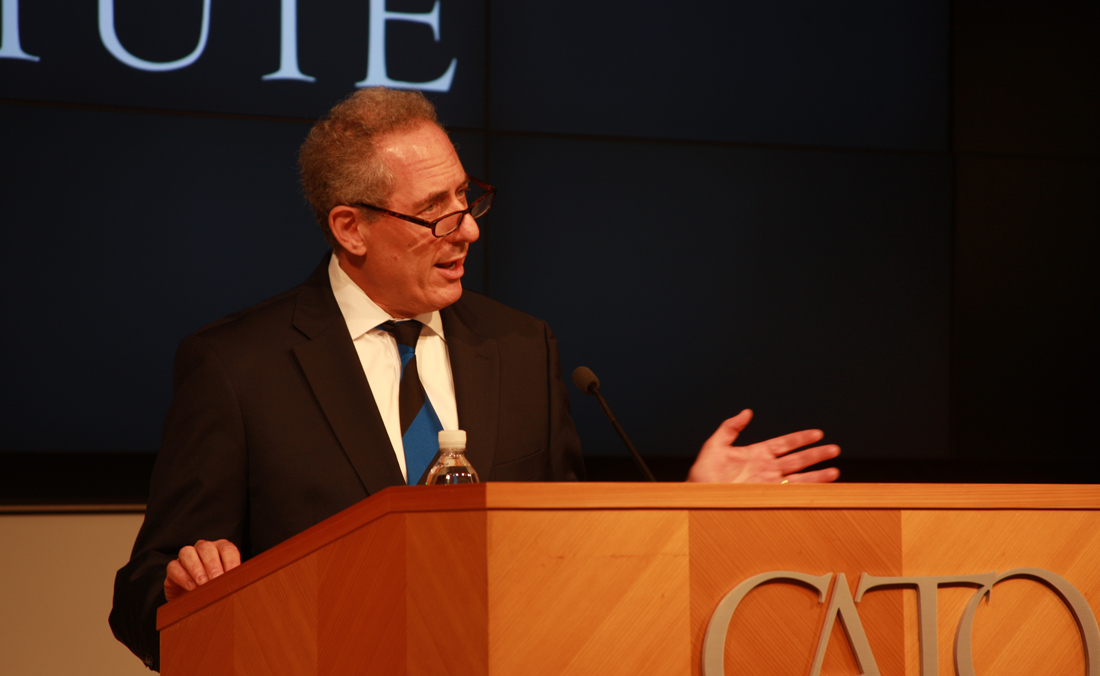The lead negotiator for President Obama has intensified efforts to persuade a skeptical Congress to pass a divisive free-trade agreement with Pacific Rim countries, a deal that Donald Trump this week called “a continuing rape of our country.”
U.S. Trade Representative Michael Froman has been seeking to ease concerns of Democrats and some Republicans who worry the so-called Trans-Pacific Partnership will do more harm than good. He asserts the 12-nation trade deal that includes Canada, Australia and Japan is an antidote to wage stagnation and income inequality in the U.S.
“Trade agreements allow us to shape globalization to our advantage,” Froman said Thursday at the Cato Institute, a libertarian-leaning think tank that supports free trade and is usually more aligned with Republicans.
The case for TPP got some indirect support last weekend after a Democratic committee rejected a proposal backed by presidential contender Bernie Sanders to oppose a “lame-duck” vote on the deal after the November election. Other Democrats did not want to tie Obama’s hands.
Democratic opponents claim the TPP fails to protect labor rights and could cost American jobs as imports surge. Millions of U.S. manufacturing jobs, for example, were lost after 2001 in the wake of a proliferation of free-trade deals, though economists say other factors such as increased automation were also at work.
Presumed Democratic presidential candidate Hillary Clinton has come out against the trade deal she once backed, saying it needs improvement. Trump, now representing a fractured Republican party that once was uniformly in favor of free trade, has been even more critical.
“The Trans-Pacific Partnership is another disaster done and pushed by special interests who want to rape our country,” Trump said at an event in Ohio on Tuesday. “Just a continuing rape of our country.”
Trade has become an explosive political issue in the U.S. amid the worst economic recovery since World War Two. The U.S. has far fewer well-paying blue-collar jobs now compared to 15 years ago and many households are doing no better financially than they were before the Great Recession of 2007-2009.
Still, a majority of Republicans and sizable minority of Democrats remain in favor of free trade despite misgivings.
“Both candidates are dead wrong on TPP,” said Clayton Yeutter, former U.S. trade representative for President Ronald Reagan.
In his public and private appearances, Froman insists that agreements to lower trade barriers will boost American exports and lead to the creation of new jobs, a view supported by most economists and private business groups.
Obama, for his part, said he understands the public angst, but turning away from free trade is “the wrong medicine.” Obama and the leaders of Canada and Mexico on Wednesday emphasized their commitment to free trade and integrated markets at a meeting in Ottawa. All three countries have signed but not yet ratified TPP.
Congress could vote on the deal after the November presidential election and before Obama leaves the White House, but Clinton and Republican Senate Majority leader Mitch McConnell have discounted the idea of a lame-duck vote.
The Trans-Pacific Partnership is an agreement among 12 Asian and North American nations that make up 40% of the global economy. Supporters say the deal will give the U.S., with its already low trade barriers, greater access to other fast-growing markets. The TPP, which excludes China, will also help the U.S. maintain its influential global role, they say.
“Our failure to move forward would weaken us economically and undermine American leadership,” Froman said. “I feel confident at the end of the day the support for TPP will ultimately be there.”
Photo at top: U.S. Trade Representative Michael Froman warns the U.S. economy and the nation’s leading global role will suffer unless the Pacific Rim free-trade deal is approved. (Harvard Zhang/Medill News Service)


